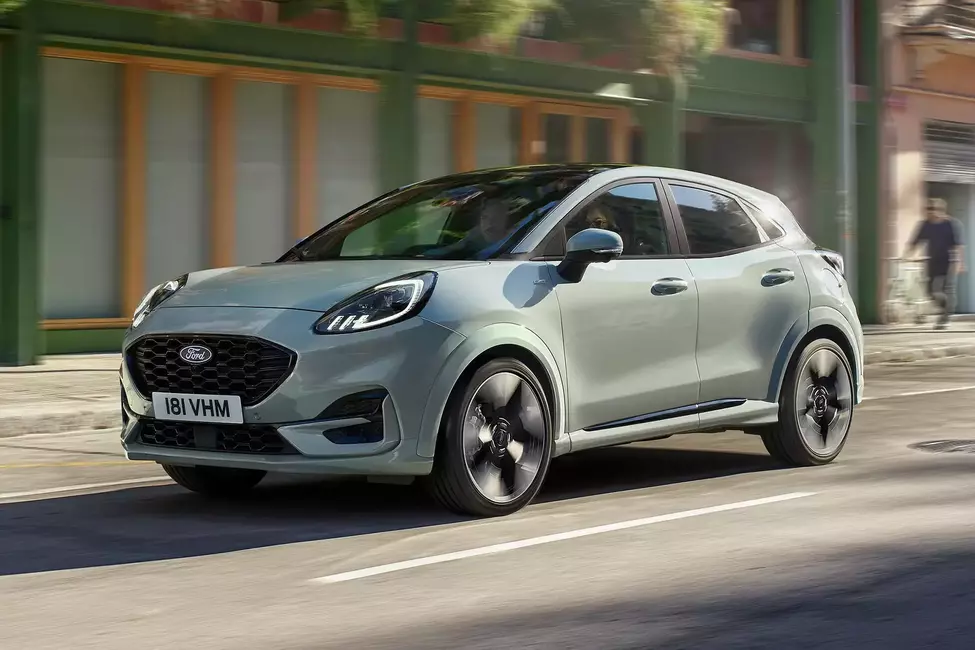Car finance for students

Car finance for students
Hoping to borrow money for a car while you’re at university? Here’s everything you need to know about car finance options for students.
Having a car can be important for university life, especially if you’re based in a town or city without a reliable public transport system. But cars are expensive, and students don’t always have the means to buy one outright. Spending your student loan on a set of wheels isn’t perhaps the best idea, so it might be better to investigate buying a car on finance.
We’ll assume here that you’re relatively young – 18 to 21 – rather than a mature student with lots of credit history behind them. Younger students can find it harder to get credit from lenders, because they don’t have a provable history of financial responsibility. From the lender’s point of view, that makes them a higher risk.
If you’re under 18, then we’ll have to be honest – your chances of getting a car on finance are basically non-existent. Using your savings or borrowing from family are likely to be your only options. But for older students, there could still be viable options.
Finance options
When it comes to keeping monthly costs down, financing a car through a Personal Contract Purchase (PCP) deal is the first option for many people. After paying a deposit, you’ll agree to relatively affordable monthly repayments, and at the end of the deal you can either hand the car back with nothing else to pay, trade it in for another model, or pay a lump sum – known as a balloon payment or optional final payment – to own the car. PCP lets you get hold of a new or relatively new car without big up-front costs. However, you won’t own the car until you pay the final payment, which can be sizable.
Another option could be hire purchase (HP). This lets you spread the cost of a car over a deposit and monthly repayments, with no final balloon payment, and you’ll own the car at the end. The downside is that the monthly payments will usually be larger than an equivalent PCP deal. That said, hire purchase is available on older cars, which can bring costs down considerably. PCP deals are generally only available on cars up to a few years old.
Check your credit history
Whichever type of finance you’re looking at, you’ll need to make sure your credit history is up to standard. Everyone has a credit history, even if you’re young – from the moment you first opened a bank account, or took out a mobile phone contract, or subscribed to Netflix, your financial movements are tracked by a credit reference agency.
Lenders use this information, as well as factors like your address, employer’s details and salary to assess your suitability for car finance. You’re entitled to see what’s in your credit history, and you can do so through ClearScore, Credit Karma, Moneysupermarket’s Credit Monitor or Money Saving Expert’s Credit Club.
It’s always worth doing this, because you should check for mistakes – they can happen, and they can affect your rating and chances of being approved for finance. If you spot any, tell the agency and they’ll investigate and, if necessary, amend your history.
Register on the electoral roll
The electoral roll, sometimes called the electoral register, lists everyone registered to vote. If you’re over 16 you may well be on it already, and the details – your name and address – will be on your credit history.
It may well be that you’re registered at your home address rather than your student housing, so it can help your chances of obtaining finance if you register at that second address, too. This helps lenders confirm the address you’ve given on your finance application. You can do this through your local Electoral Registration Office if you’re in England, Scotland or Wales, or through the Electoral Office for Northern Ireland if you’re in Northern Ireland.
Know your finances
Before you apply for car finance, you’ll need to make sure you can afford to repay the credit, and the only way to do that is to have a firm grasp of your income and outgoings. Whether you have savings, a part-time job, support from parents or any other kind of income, you’ll need to note down the income you get, subtract your expenses, such as food, rent, subscriptions and so on, and see what’s left each month.
It’s worth noting that a part-time job can help a finance application. Evidence of income, especially if you have several months worth of wage slips, will help a lender establish that you have regular income.
Establishing your income and outgoings will give you a good idea of what kind of budget you’re working with. A good, small used car on a PCP finance deal will start at around £100 a month, although you’ll probably need a deposit of around £1000 first.
Lenders will use all this financial information to confirm that you’ll be able to repay what you owe. Responsible lenders won’t approve finance if the monthly repayments total more than 25% of your net income.
Remember that the cost of a car doesn’t finish with your finance repayments. You’ll also need to factor in fuel, Vehicle Excise Duty (road tax) and consumables such as tyres. Then there’s general servicing and maintenance, and of course car insurance.
Don’t forget about insurance
Not only is it illegal to drive a car without insurance, it’s also a big financial factor to consider for young drivers. Various factors influence how much insurance you’ll have to pay, including your car, your driving history and where you live, but the annual costs can be well into the thousands of pounds.
Make sure you get a number of quotes, and set aside the cash for payments. You can usually pay for a year’s insurance up front, or spread it out over monthly instalments. If it looks like your premium could be hefty, make sure you get a car that’s in a low insurance group.
Consider a guarantor
If you’ve read the above and are worried that you’re not in a financial position to be approved for finance, consider guarantor car finance. This is a financial arrangement whereby you’re backed up by a guarantor – usually a relative – who has a good credit score and is prepared to continue repayments on your behalf if you’re unable to make them.
Naming a guarantor gives lenders confidence that they’ll get their money back. But as with any finance deal, if you and your guarantor fail to make the repayments, the car could be seized, with long-term impact on your credit rating and possible court proceedings.
Car subscriptions
Some car manufacturers offer car subscription deals, whereby all your motoring costs are bundled into one. The car, servicing, insurance and breakdown cover are all included, and all you have to pay is fuel. And monthly repayments, of course.
These are normally based on PCP deals and usually only cover new cars, so they can be expensive, but they could be attractive when it comes to budgeting and planning how much money you’ll need to borrow.
Browse our most popular models

24/09/2024
Best Car Deals for New and Used Cars
Whether you're looking for the best PCP deal, huge savings with a great car leasing deal or car finance discounts, we’ve searched to find the best car deals for you.
Best 0% APR Car Finance Deals
If you're looking for a 0% car finance deal on a new car, you've come to the right place. We've searched to find the best 0 interest finance car deals out there to help you save money.
Best PCP Car Deals
Personal Contract Purchase (also known as PCP) could allow you to get your hands on a new car without needing to stump up a significant sum of cash all at once. And to help you out, we've rounded up all the best PCP car deals on offer in the UK today.
Promotions
Trustpilot Reviews
Get our latest advice, news and offers
Keep me updated by email with the latest advice, news and offers from heycar.
By submitting you agree to our privacy policy














